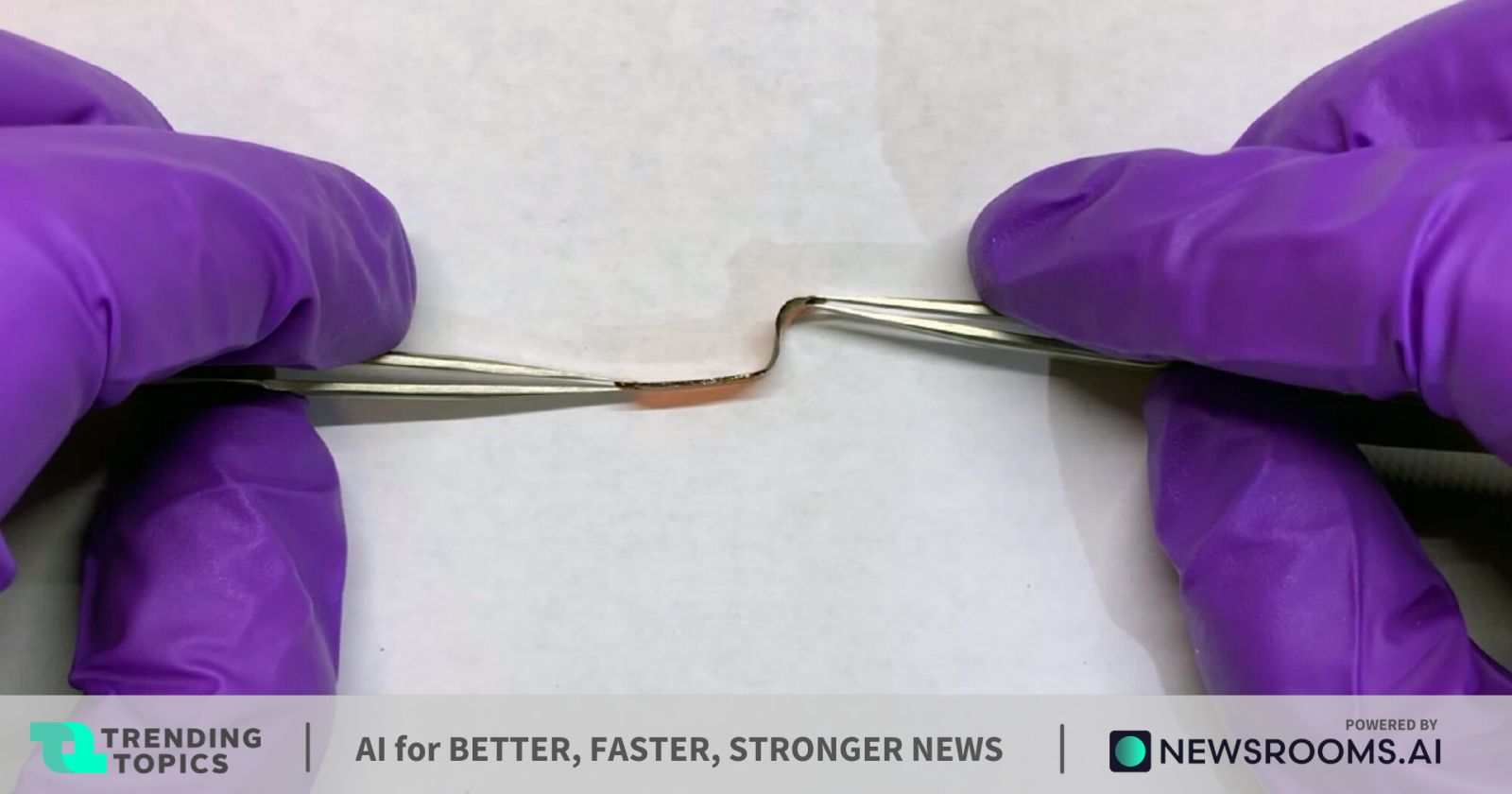:quality(90)/p7i.vogel.de/wcms/24/46/24464a69a94b692c677c17d92512af68/0119079671v2.jpeg)



In a recent breakthrough, researchers at the Pritzker School of Molecular Engineering at the University of Chicago have developed a heat-transformable plastic that can change shape on demand through rapid heating and cooling. The material retains its rigidity at room temperature and can be differentiated into multiple materials with different mechanical properties, allowing for the production of various shapes without generating waste. The findings were published in the journal Science. This innovative plastic has the potential to be used in a wide range of applications, including space exploration, ships, and conflict zones, and could contribute to reducing plastic waste [1a068def]
This development complements the earlier research conducted by the KTH Royal Institute of Technology, where researchers discovered a method to manipulate the melting and cooling of materials, enabling them to reorganize their mass and form new shapes. While the KTH Royal Institute of Technology's research focused on materials that can autonomously shapeshift in 3D, the heat-transformable plastic developed by the University of Chicago researchers offers a different approach. By utilizing rapid heating and cooling, the plastic can be easily transformed into different shapes, providing flexibility and adaptability for various applications [b524ee7b]
The ability to manipulate the structure of materials and create shapeshifting properties opens up new possibilities in engineering, architecture, and other industries. These advancements in material science bring us one step closer to realizing the potential of shapeshifting materials and their applications in various fields. The combination of the KTH Royal Institute of Technology's research and the University of Chicago's heat-transformable plastic offers exciting prospects for the future of materials and their impact on industries such as aviation, space exploration, and more [b524ee7b]
Fyous, a Los Angeles-based company, has launched the world's first reusable polymorphic moulding technology called Polymorphic moulding. The technology can shapeshift in under 20 minutes, producing zero tooling waste and making usable parts 14 times faster than 3D printing. By inputting a 3D CAD model, Fyous software generates the Polymorphic mould shape. The Polymorphic machine then shapeshifts the mould to create the intended product. The technology, devised and engineered by Fyous' co-founders Joshua Shires and Thomas Bloomfield, features more than 28,000 densely packed pins that create the mould. The mould can withstand six tonnes of distributed pressure. Fyous aims to reduce time to market for a wide array of products and unlock commercial viability for products that currently have no cost-effective manufacturing method. The technology supports a wide array of materials and processes, including moulding and casting, vacuum forming, and composite lay-up [5ad20f81]
NASA has also made significant progress in the field of materials science with the development of elastocaloric materials for cooling applications in space missions. Elastocaloric materials heat up when exposed to a mechanical force and cool down when the force is removed. Professor Cui from Iowa State University will use a DFT/machine learning guided metals development methodology to develop novel elastocaloric materials for a high-performance refrigeration system for NASA exploration applications. This breakthrough in elastocaloric cooling technology could revolutionize cooling systems for space missions, providing efficient and reliable cooling solutions for astronauts and equipment in space [00391073]